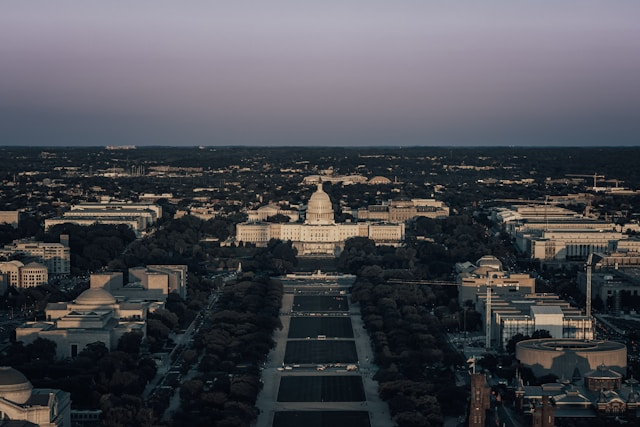A federal appeals court has cleared the way for the Trump administration to end Temporary Protected Status for key groups, putting tens of thousands of people at immediate risk of deportation as early as September 8, 2025. On August 20, the Ninth Circuit allowed the government to proceed with ending TPS for nationals of Nicaragua, Honduras, and Nepal, reversing a lower court’s hold. For Nicaraguans and Hondurans, termination now takes effect on September 8, 2025, affecting about 72,000 people who have lived and worked in the United States 🇺🇸 for years.
Temporary Protected Status, known as TPS, is a humanitarian program created in 1990 for people from countries facing war, disaster, or other extraordinary problems. It lets eligible people stay in the U.S. for a set time and work legally. It does not provide a green card or citizenship. When TPS ends, people who don’t have another legal status become subject to deportation and lose their work permits, which means they can’t lawfully work.

Administration and Advocacy Positions
The administration argues the program has been misused. DHS Secretary Kristi Noem says conditions have improved in several countries and that TPS “was never intended as a permanent solution.” A DHS spokesperson, Tricia McLaughlin, said past leaders used TPS “as a de facto asylum system,” allowing “hundreds of thousands of foreigners into the country without proper vetting.”
Advocacy groups, including the ACLU and the National TPS Alliance, strongly dispute this view. They warn that ending protections will break apart families and send people back into danger.
Current and Pending Terminations (Key Dates and Numbers)
- Honduras & Nicaragua: TPS ends on September 8, 2025 — affecting about 72,000 people.
- Venezuela:
- Protections tied to a 2021 designation are set to expire in September 2025.
- DHS ended TPS under a 2023 designation for Venezuelans on February 5; a federal judge temporarily blocked that move, but the administration is pushing to carry it out.
- Up to 472,000 Venezuelans were eligible under the 2023 grant, including about 250,000 active TPS holders. Advocacy groups estimate as many as 350,000 Venezuelans could lose status by August 2025 if litigation fails.
- Haiti:
- DHS announced the end on June 27, 2025; a judge blocked early termination on July 1.
- If challenges fail, up to 500,000 Haitians could lose protections and work authorization on September 2, 2025.
- Afghanistan: TPS ended on July 14, affecting about 9,000 people.
- Cameroon & Nepal: Lost TPS in June, affecting more than 7,000 combined.
- TPS remains active for several countries — Myanmar, El Salvador, Ethiopia, Lebanon, Somalia, South Sudan, Sudan, Syria, Ukraine, and Yemen — though many face later deadlines in 2025.
According to the most recent government data cited by advocates, there were about 1.1 million TPS holders in the U.S. as of September 30, 2024. Roughly 570,000 are in the labor force, supporting more than 260,000 U.S. citizen children and about 320,000 U.S. citizen adults.
These figures explain why local leaders and employers are bracing for major disruptions—especially in construction, hospitality, and business services—if deportation orders and work permit losses take effect at scale in September.
Legal Process, Timelines, and What TPS Holders Can Do
The Ninth Circuit’s decision shifts momentum to the administration after months of legal back-and-forth. Multiple lawsuits remain active, and some judges have paused aspects of the wind-down. Recent appellate rulings, however, have leaned toward the government.
Important procedural points:
– There is no automatic path for TPS holders to remain in the country when TPS ends.
– To stay, a person must qualify for another form of relief (e.g., asylum or family-based adjustment) and apply independently.
– If they cannot qualify for another status, they become removable once TPS ends.
– DHS issues formal termination notices listing effective end dates and any final steps for a country’s beneficiaries.
– There is no blanket protection for mixed-status families; parents with TPS often have U.S. citizen children in school and spouses with different statuses.
Advocacy groups say terminations will split households and harm children. The administration contends the overhaul restores the program’s original purpose and that long extensions created dependency and invited misuse.
Policy Context: OBBBA and Detention Expansion
The shift in TPS policy coincides with the “One Big Beautiful Bill Act” (OBBBA), signed by President Trump on July 4, 2025. Key points of OBBBA:
- Funds a large expansion of immigration detention through 2029, including family detention and provisions that allow indefinite detention of children.
- Includes $45 billion to build out detention capacity and enforcement.
Advocates warn that the detention buildout raises the risk that people formerly protected by TPS could be held for long periods while cases move through the system.
Human and Economic Impact
The stakes are both personal and economic.
Human impacts:
– Plaintiffs describe fear and heartbreak after spending decades in the U.S., owning mortgages, holding steady jobs, and building community ties.
– Mixed-status families face potential separation, forced relocation, or long-term guardianship issues for U.S. citizen children.
– Humanitarian groups (e.g., the International Rescue Committee) warn that returns to countries still facing violence, scarcity, or persecution could be life-threatening.
Economic impacts:
– Employers fear losing experienced staff will slow projects and raise costs.
– Construction firms in Florida and the Gulf Coast rely on TPS workers with hard-to-replace skills.
– Hotels in tourist zones worry about service quality and revenue after summer travel season.
– Business owners worry about legal exposure if they retain workers after EADs (Employment Authorization Documents) expire.
Local governments and school districts are preparing for fallout: guardianship planning, missed rent or mortgage payments, and mobilizing nonprofits to assemble rapid-response teams for legal help and family stabilization.
What Officials and Advocates Recommend Now
Service providers and attorneys are urging TPS holders to take immediate steps:
- Seek a legal screening to determine eligibility for other forms of immigration relief.
- Gather and preserve supporting records (IDs, employment records, birth certificates, proof of ties to the U.S.).
- Appoint guardians or make contingency plans for children if detention or removal occurs.
- Prepare financially and document employment and housing arrangements.
- Stay informed about court developments and DHS termination notices.
There is no automatic shift to a green card; work permits tied to TPS expire with the status. According to VisaVerge.com analysis, once TPS lapses and a person has no other status, they may be detained and placed in removal proceedings.
What to Watch (Near-Term Priorities)
As the fall deadline nears, affected communities are tracking three main issues:
- Court outcomes that could delay or uphold TPS terminations.
- DHS operational steps, including termination notices and EAD end dates.
- The expanding role of detention under OBBBA, especially for families with children.
Legal experts stress that immigration court backlogs make fast resolutions unlikely, heightening the risk of long separations even before final deportation orders.
Urgent Dates to Note
- September 2, 2025: Critical date for potential end of Haitian TPS protections.
- September 8, 2025: Critical date for potential end of Honduran and Nicaraguan TPS protections.
- Other expirations for Venezuelans and additional countries may also come in early September and through late 2025/2026, depending on litigation outcomes.
Further terminations could follow into 2026 unless designations are renewed by DHS or altered through court rulings.
Resources and Official Updates
For official updates on TPS designations, terminations, and eligibility, see U.S. Citizenship and Immigration Services:
https://www.uscis.gov/humanitarian/temporary-protected-status
As deadlines approach, families try to keep daily life steady—school drop-offs, work shifts, church—while watching the calendar. For many, the urgent question is no longer whether TPS will end. It’s how to navigate the days after it does, and whether the place they’ve called home for years will let them stay beyond September 8, 2025.
This Article in a Nutshell
A court decision cleared the way to end TPS for Nicaragua, Honduras and Nepal; Honduran and Nicaraguan TPS ends September 8, 2025, risking work-authorized residents with deportation unless they secure other legal relief.













